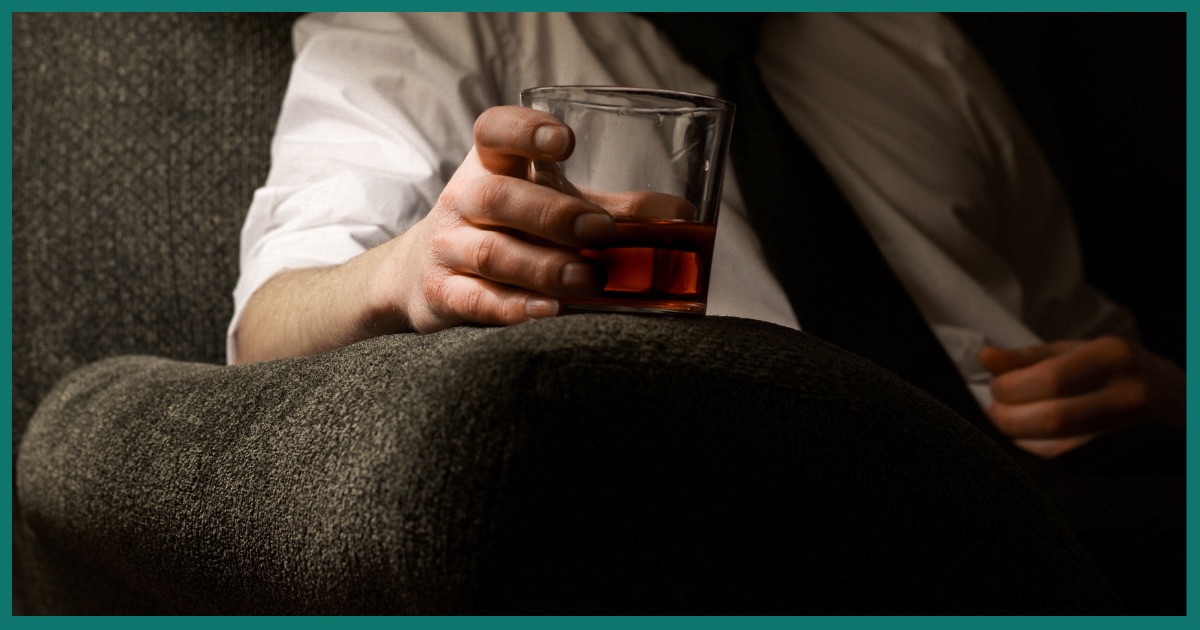Can Alcoholism Be Cured? A Modern, Hopeful Answer
By Sophie Solmini
Founder, ICADC, MATS, NCRC

Clinical Context: This article is reviewed by a Certified Alcohol and Drug Counsellor. It provides educational information and is not a substitute for professional medical advice.
It’s one of the most common, whispered questions in the world of recovery: “Can this actually be cured?”
When you're struggling, the idea of a “cure” is a powerful lifeline. You imagine a future where the fight is simply over, where you are no longer defined by your relationship with alcohol. It’s a completely natural and valid thing to hope for. But the word “cure” can be a bit of a trap when it comes to a complex condition like Alcohol Use Disorder (AUD).
This isn't a message of despair; it's a message of clarity and, ultimately, greater hope. The modern, science-based answer is more nuanced and empowering than a simple yes or no. At Heal@Home, we believe in providing honest answers that lead to real, sustainable change. Let's break down what a “cure” for AUD really looks like in the 21st century.
Why 'Cure' Can Be a Misleading Word
First, let's reframe the problem. We don’t think of a chronic condition like diabetes or high blood pressure as something to be “cured.” We see it as something to be managed. Alcohol Use Disorder is a chronic disease of the brain. It creates long-term changes in your brain's structure and neurochemistry, especially in the areas related to reward, stress, and self-control.
- It’s Not an Infection: You can't take an antibiotic for a week and be “cured” of AUD. The underlying changes in the brain remain, which means a vulnerability to relapse can persist.
- It’s Not a Moral Failing: Thinking in terms of a “cure” can sometimes feed into the idea that this is a personal weakness that just needs to be fixed. Viewing it as a chronic condition removes the shame and allows for a medical, compassionate approach.
A More Hopeful and Realistic Goal: Remission
If “cure” isn't the right word, what is? The medical community uses a much more accurate and hopeful term: remission. What does that mean? It means reaching a state where the symptoms of AUD are no longer present. It’s a state of freedom.
What Remission Feels Like: Remission isn't about white-knuckling your way through every day. It's a state where alcohol no longer occupies your mental real estate. It's the quiet confidence of waking up without the first thought being about drinking or regret. Cravings are gone or are so infrequent and mild that they are easily dismissed. You have regained the power of choice. You can attend social events without a constant internal battle. In short, you have your life back. Achieving lasting remission is a realistic, science-backed goal. And it is a far more empowering target than the black-and-white pressure of a "cure."
The Tools That Make Remission Possible
So, how do you get there? For a long time, the only tool offered was willpower. But asking someone to fight the powerful biological force of cravings with willpower alone is like asking them to fight a forest fire with a water pistol. The odds are stacked against you.
This is where a modern, medical approach changes everything. At Heal@Home, our entire program is built on using evidence-based tools to address the biological root of the problem. This is the core of Medication-Assisted Treatment (MAT). Our approach, which often includes The Sinclair Method (TSM), uses a safe, non-addictive medication like naltrexone. This medication works by reducing the craving for alcohol. It's the tool that evens the odds. By quieting the overwhelming biological “noise,” it gives you the mental clarity and stability to do the important psychological work of recovery,building new habits, developing new coping skills, and addressing the underlying reasons for your drinking.
Remission and Relapse: A New Way of Thinking
If AUD is a chronic condition, what does that mean for relapse? The old view saw a relapse as a total failure,a sign that you were back at square one. This mindset is incredibly damaging and can lead to a shame spiral that turns a single slip into a prolonged binge.
The modern, chronic care model sees it differently. If a person with diabetes has a high blood sugar reading, they don't say they've "failed" at managing their condition. They see it as a data point. They analyze what happened,what they ate, their stress levels,and adjust their plan. A slip with alcohol should be viewed the same way. It’s not a failure; it's feedback. It’s an opportunity to learn about a trigger and strengthen your recovery plan, not a reason to abandon it.
Building a Life That Supports Long-Term Remission
Achieving remission is the first step; maintaining it is about building a life you don't want to escape from. The medication provides the foundation, and these are the pillars you build on top of it.
- Therapy and Counseling: Working with a professional can help you develop healthy strategies for managing stress, anxiety, and other triggers.
- Meaningful Connection: Finding your people is key. Peer support groups like SMART Recovery Canada offer a community of people who understand the journey.
- Healthy Habits: Prioritizing sleep, nutrition, and gentle exercise provides your brain with the resources it needs to continue healing and building resilience.
For more information on the different types of help available, the Government of Canada provides a comprehensive resource portal.
So, Can Alcoholism Be Cured?
While we may not use the word “cure,” the answer is yes,you can achieve a state of lasting remission where alcohol no longer controls your life. If you're in Canada and ready to explore a science-based path to remission, contact Heal@Home for a confidential chat about our programs. Call us at 647-545-6751 or visit us online today.
Interested in our Program?
Our team provides a private, 12-week protocol designed to help you regain control from home.
Speak with our Team